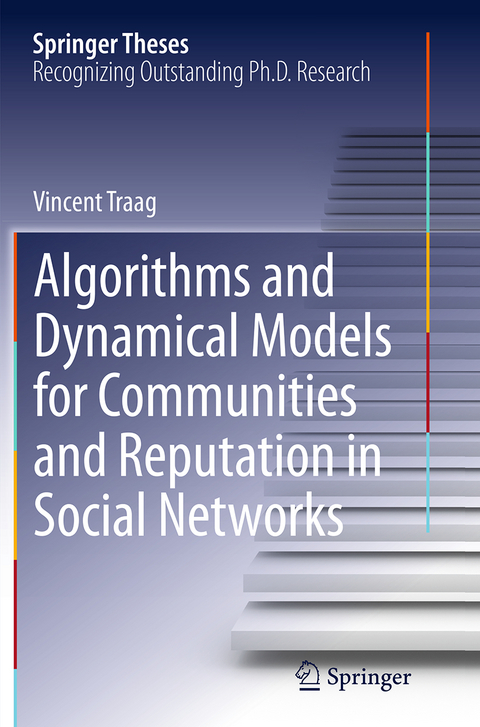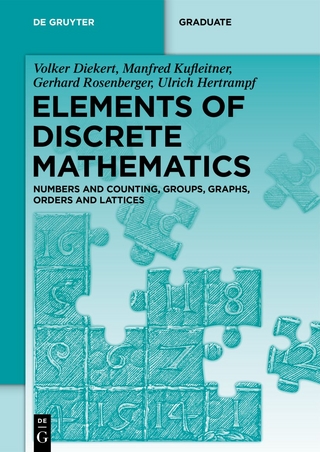
Algorithms and Dynamical Models for Communities and Reputation in Social Networks
Springer International Publishing (Verlag)
978-3-319-36062-1 (ISBN)
After having obtained a (cum laude) Masters in sociology from the University of Amsterdam, Vincent Traag turned to the Université catholique de Louvain in Belgium, where he obtained his Ph.D. in applied mathematics, under the supervision of Paul Van Dooren and Yurii Nesterov. Trying to combine sociology and mathematics, Traag performed extensive research in complex networks, with a particular focus on communities and reputation in networks. One particular interest is how conflict and cooperation arise. In his current position Traag is trying to understand how elite networks in Indonesia reflect political events.
Introduction.- Part I Communities in Networks.- Community Detection.- Scale Invariant Community Detection.- Finding Significant Resolutions.- Modularity with Negative Links.- Applications.- Part II Social Balance & Reputation.- Social Balance.- Models of Social Balance.- Evolution of Cooperation.- Ranking Nodes Using Reputation.
| Erscheinungsdatum | 16.09.2016 |
|---|---|
| Reihe/Serie | Springer Theses |
| Zusatzinfo | XIV, 229 p. 40 illus., 19 illus. in color. |
| Verlagsort | Cham |
| Sprache | englisch |
| Maße | 155 x 235 mm |
| Themenwelt | Mathematik / Informatik ► Mathematik ► Graphentheorie |
| Naturwissenschaften ► Physik / Astronomie ► Theoretische Physik | |
| Schlagworte | Applications of Graph Theory and Complex Networks • community detection • Complex analysis, complex variables • complex networks • Conflict in Networks • Evolution of Cooperation • Game Theory • Game Theory, Economics, Social and Behav. Sciences • Mathematical Physics • Mathematics in the Humanities and Social Sciences • Maths for scientists • Negative Links • Organizational Studies, Economic Sociology • Physics • Physics and Astronomy • Resolution Limit • Social Balance • Sociology: work and labour |
| ISBN-10 | 3-319-36062-0 / 3319360620 |
| ISBN-13 | 978-3-319-36062-1 / 9783319360621 |
| Zustand | Neuware |
| Haben Sie eine Frage zum Produkt? |
aus dem Bereich
